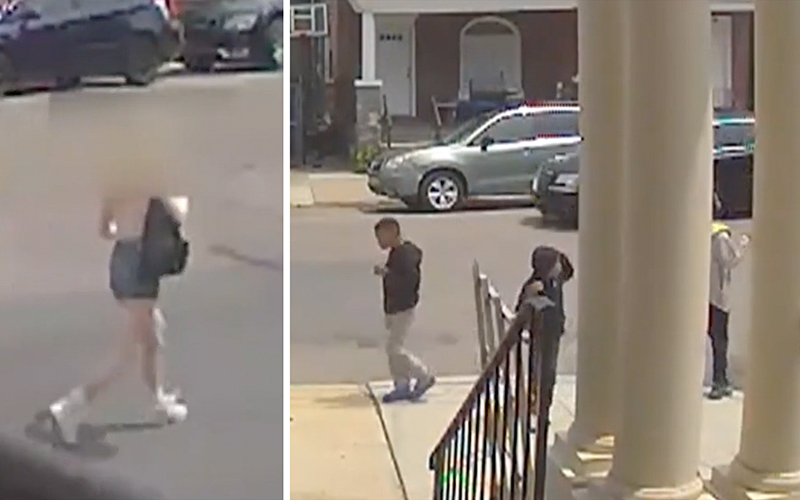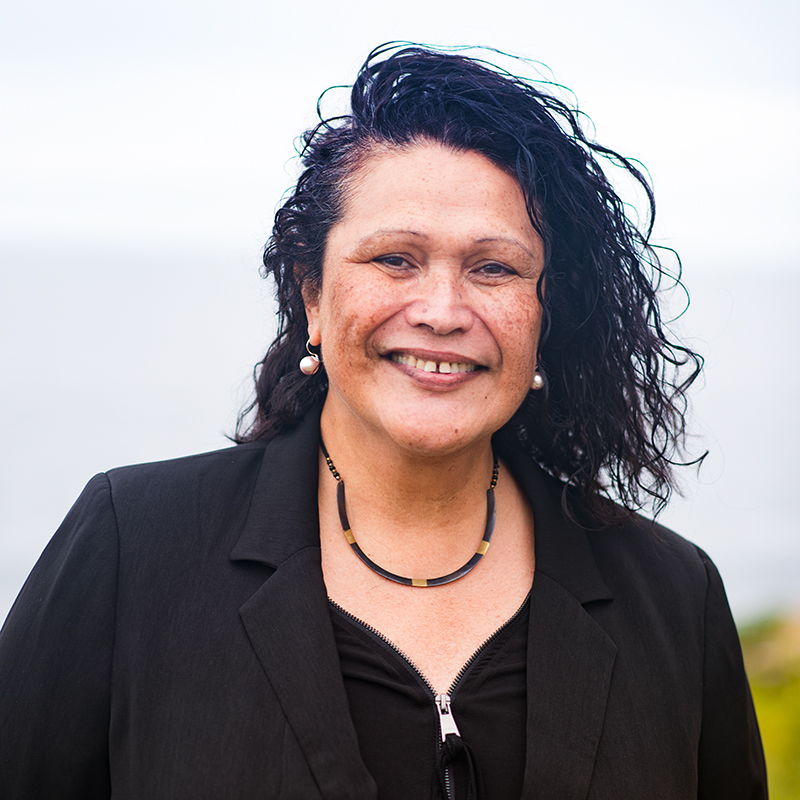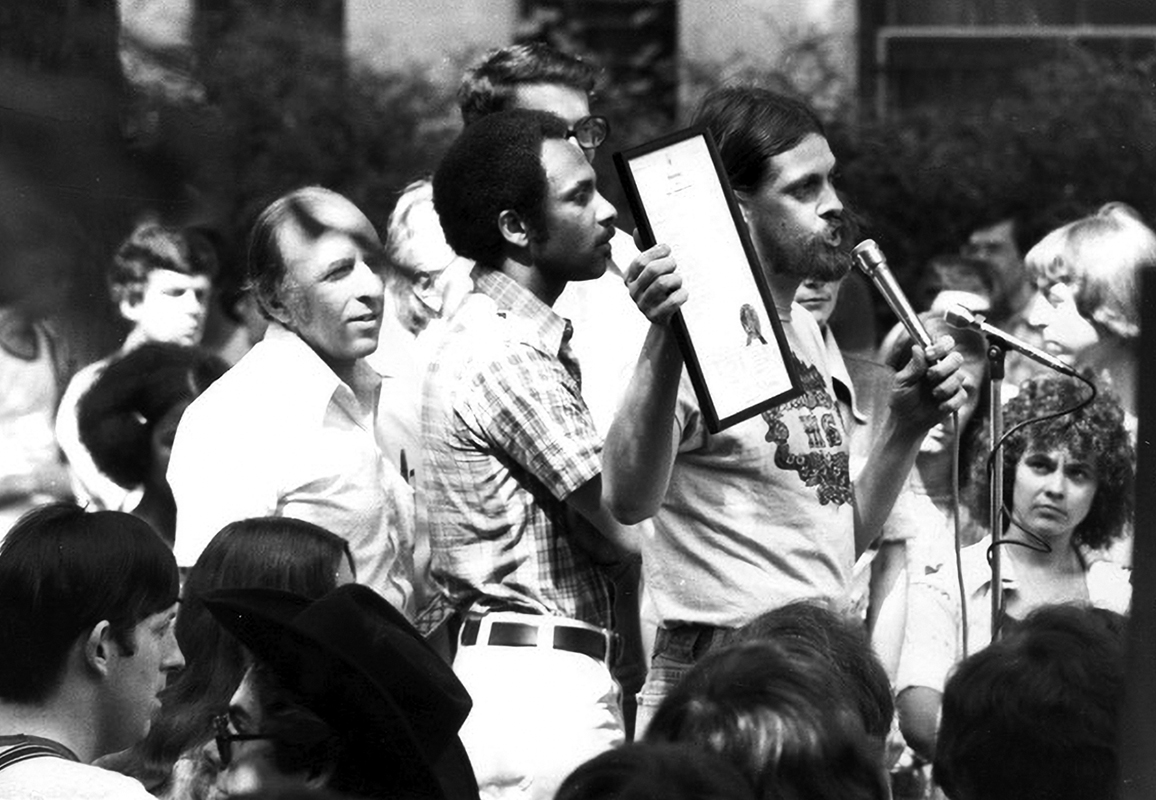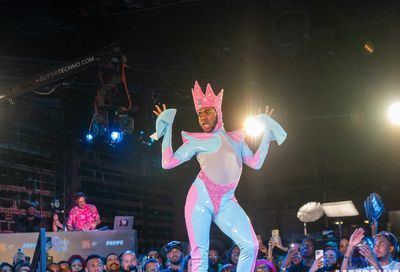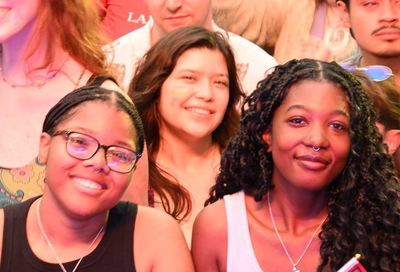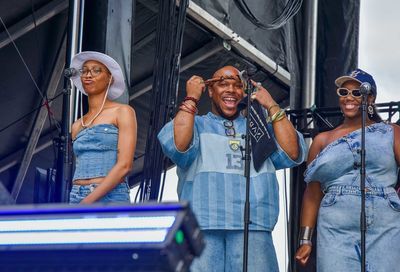Local News: A Look Back at 2006
Frank Kameny's Papers, Whitman-Walker shake-ups, Swann Street murder, The Center's celebration, White House Easter Egg Roll
History Boy
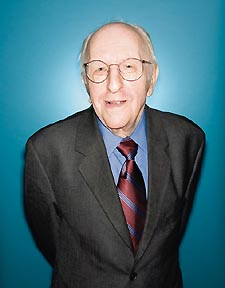 Kameny (Photo by Todd Franson) |
THE LIBRARY OF Congress opened its sanctified shelves of Americana in October, making way for the addition of ”The Kameny Papers.” This collection of roughly 70,000 documents, picket signs, and other treasures of the civil-rights movement for gay Americans has been collected over the years by its namesake, Frank Kameny. A local benefactor of the project, Charles Francis, helped organize decades’ worth of self-proclaimed ”packrat” Kameny’s memorabilia into a suitable donation for the Library. But while Kameny has friends, the donation also brought out his critics.
”Kameny doesn’t belong in the category of ‘Civil Rights Heroes,”’ said Peter LaBarbera, founder of the anti-gay group, Americans for Truth. ”Call it ‘pro-gay’ versus the traditional moral perspective.”
Despite the spite from LaBarbera and others, it seems that Kameny is likely going to stay right where he is. After taking on Nazis on the battlefield, and the FBI, the Pentagon and the White House in the public arena, Kameny seems downright unbeatable. Another testament to his staying power was 2006 marking the 35 the anniversary of the Gay and Lesbian Activists Alliance of Washington, D.C., which was formed out of Kameny’s 1971 run for Congress.
With the induction of his papers into the Library of Congress, the 81-year-old Kameny — and the rest of the movement — may see 2006 as the year he captured a sort of immortality.
”Nearly 50 years ago, the United States Government banned me from employment in public service because I am a homosexual,” Kameny said in a statement released for the Library of Congress ceremony Oct. 6. ”This archive is not simply my story; it also shows how gay and lesbian Americans have joined the American mainstream story of expanded civil liberties in the 20th century. Today, by accepting these papers, the nation preserves not only our history, but marks how far gay and lesbian Americans have traveled on the road to civil equality.”
Turn the Beat Around
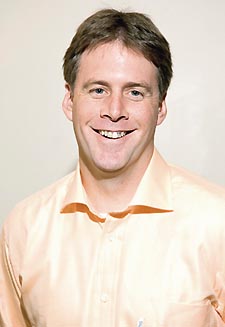 Blanchon Photo by Todd Franson |
IT WAS NO secret that Whitman-Walker Clinic had seen better days as 2006 rolled in. The historic gay and lesbian clinic that had grown from a small STD clinic in Adams Morgan into one of the nation’s premier AIDS service providers, yet it was on the precipice after months of controversy, financial strains and employee unrest.
When, after an extended search, the clinic tapped Donald Blanchon for the top spot, the community wasn’t exactly sure what to expect. Some staff shake-ups were immediate and surprising, such as the letting go of Medical Director Phillipe Chiliade. But as the year progressed, rumblings from staff became less strident, even positive.
Adding to the clinic’s good news for 2006 was a successful Capital Pride Parade and Festival and a resurgent AIDS Walk fundraiser in late October. While Whitman-Walker may not be totally out of the woods yet — more changes are said to be on the horizon for 2007 — it does seem to be well back from the edge.
A Mystery Remains
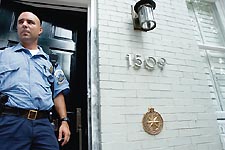 On the scene of a murder Photo by Todd Franson |
ROBERT WONE DIED in a Swann Street townhouse of three stabs wounds to his chest in August.
Who killed him remains a mystery.
Wone’s murder reverberated through the gay community when news broke that he was murdered while spending the night at the home of a gay couple in Dupont Circle. Although Wone lived with his wife in Northern Virginia, speculation on his orientation ran rampant, particularly when police hinted that they suspected one of the home’s three gay residents. While the residents told the police a man broke into the home and stabbed Wone, no evidence of forced entry was found.
Two of those residents, Joseph Price and Victor Zaborsky, owned the townhouse — Price was a friend of Wone’s from college. The couple, along with tenant Dylan Ward, have not made any public comment on the case. While rumors have surfaced about motives and evidence, police have filed no charges in the case.
A Year in the Life
THE CENTER – HOME for GLBT in Metro D.C. celebrated a full year at its 14th and L streets NW location in March. The Los Angeles-based David Bohnett Foundation came through with a birthday gift that marked the occasion generously: the David Bohnett Cyber Center. The six-computer lab opened to the public on March 27. Though 2006 saw The Center cancel its ”Screen on Stead” outdoor summer film program for financial reasons, the year also found The Center making progress. This community caretaker offered an Oscar gala in March, received a $100,000 grant from the district to help the Center-sponsored Crystal Meth Working Group, celebrated GLBT Hispanic Heritage with a month-long display, and initiated a four-part intergenerational discussion series.
But by the end of the year, Center President Mike Sessa’s wish for the future remained having a drop-in space for the community to gather: ”I’d love it if we could find a little storefront. That’s our biggest challenge right now, fulfilling the expectation of what people think of as a community center, being more visible.”
Bunny Business
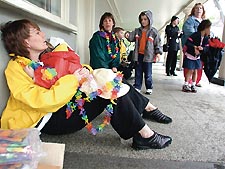 Waiting for the egg roll Photo by Todd Franson |
IT SEEMED AN innocuous enough idea: gay and lesbian parents bringing their children to the annual White House Easter Egg Roll. But for anti-gay activists, it was no bunny business — Americans for Truth declared, ”There are some bad eggs on the White House lawn today and they should be marked ‘SSA’ for Selfish Sexual Agendas. Shame on these adults for exploiting an event designed solely to bring joy to young children.”
But neither the anti-gay protestors nor the rainy weather brought down the mood of the rambunctious children who came to roll eggs and shake hands with a giant bunny. Given the success and popularity of the day, Family Pride Institute plans to return in 2007.
No word yet on whether Bill O’Reilly will be on the case again.
Support Metro Weekly’s Journalism
These are challenging times for news organizations. And yet it’s crucial we stay active and provide vital resources and information to both our local readers and the world. So won’t you please take a moment and consider supporting Metro Weekly with a membership? For as little as $5 a month, you can help ensure Metro Weekly magazine and MetroWeekly.com remain free, viable resources as we provide the best, most diverse, culturally-resonant LGBTQ coverage in both the D.C. region and around the world. Memberships come with exclusive perks and discounts, your own personal digital delivery of each week’s magazine (and an archive), access to our Member's Lounge when it launches this fall, and exclusive members-only items like Metro Weekly Membership Mugs and Tote Bags! Check out all our membership levels here and please join us today!








